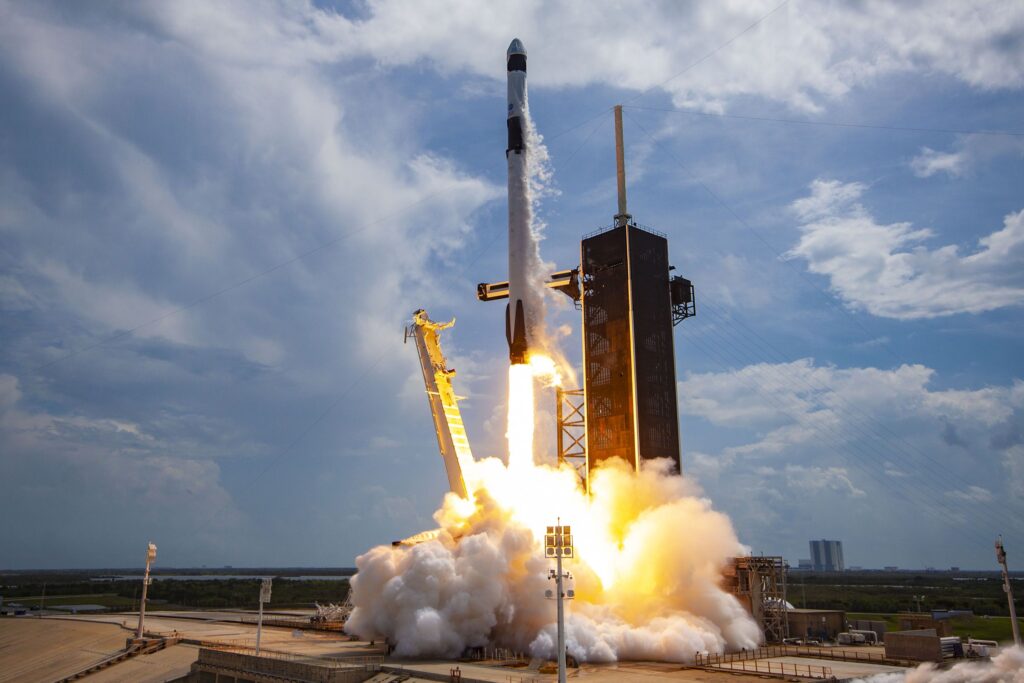SpaceX sent its most recent lot of Starlink broadband satellites into space in the early hours of Sunday, May 14.
At precisely 1:03 am EDT (0503 GMT), one of the firm’s hardworking Falcon 9 rockets successfully launched 56 Starlink satellites from Cape Canaveral Space Force Station in Florida.

After a successful take-off, the Falcon 9’s first stage descended to the ground, where it marked yet another successful mission with a renowned landing on the drone ship in the Atlantic Ocean. As SpaceX clarified on its website, the flight and landing represented the 11th time the booster was utilized. Meanwhile, the Falcon 9’s upper stage continued with its journey and released the 56 Starlink satellites into low Earth orbit.
With the recent Starlink launch, the number of Falcon 9 launches this year increased to 29 and the number of orbital missions accomplished by SpaceX in 2023 to 31. Out of the 31, 16 of them were Starlink launches, and the remaining two were done by Falcon Heavy rocket, a rocket made up of three Falcon 9s and an upper stage.
On top of this, SpaceX had recently attempted to send its cutting-edge Starship rocket to orbit last month. Though it failed to reach its goal and had to be purposely demolished for security purposes after the launch, SpaceX still considered it a success.
How Good or Bad is Starlink?
Currently, almost 4,400 Starlink satellites have been launched and Jonathan McDowell’s website has noted that SpaceX has more than 4,000 active satellites orbiting in space. While the company’s expansive broadband satellite mega-constellation has earned a lot of praise, some have voiced concerns over its potential contribution to the ongoing space debris crisis. University of Regina astrophysicist Dr. Samantha Lawler recently shared that Starlink is threatening to reach a tipping point and cause Kessler Syndrome, which would result in us feeling like we were “inside a snow globe within a couple of hours of sunrise or sunset” and even fixing the situation would be futile, similar to “collecting bullets.”
NASA, which has become one of SpaceX’s greatest allies, has warned that the satellites could obstruct its ability to recognize dangerous asteroids en route to Earth.





